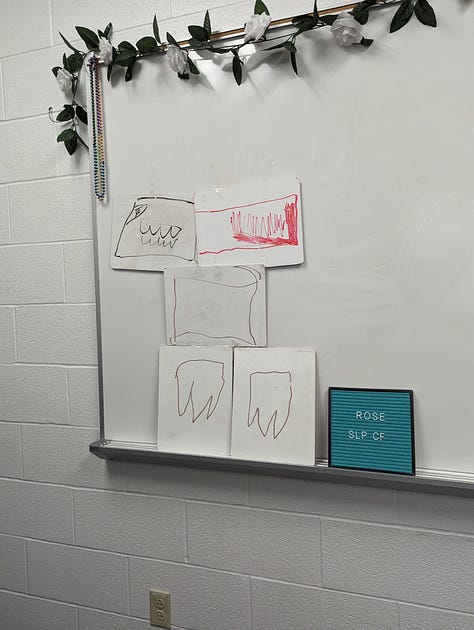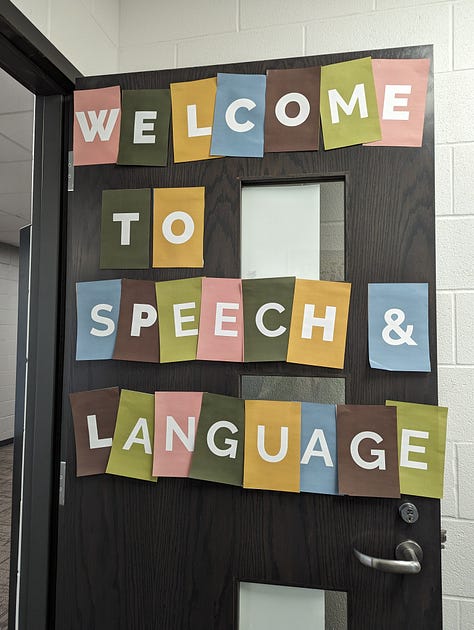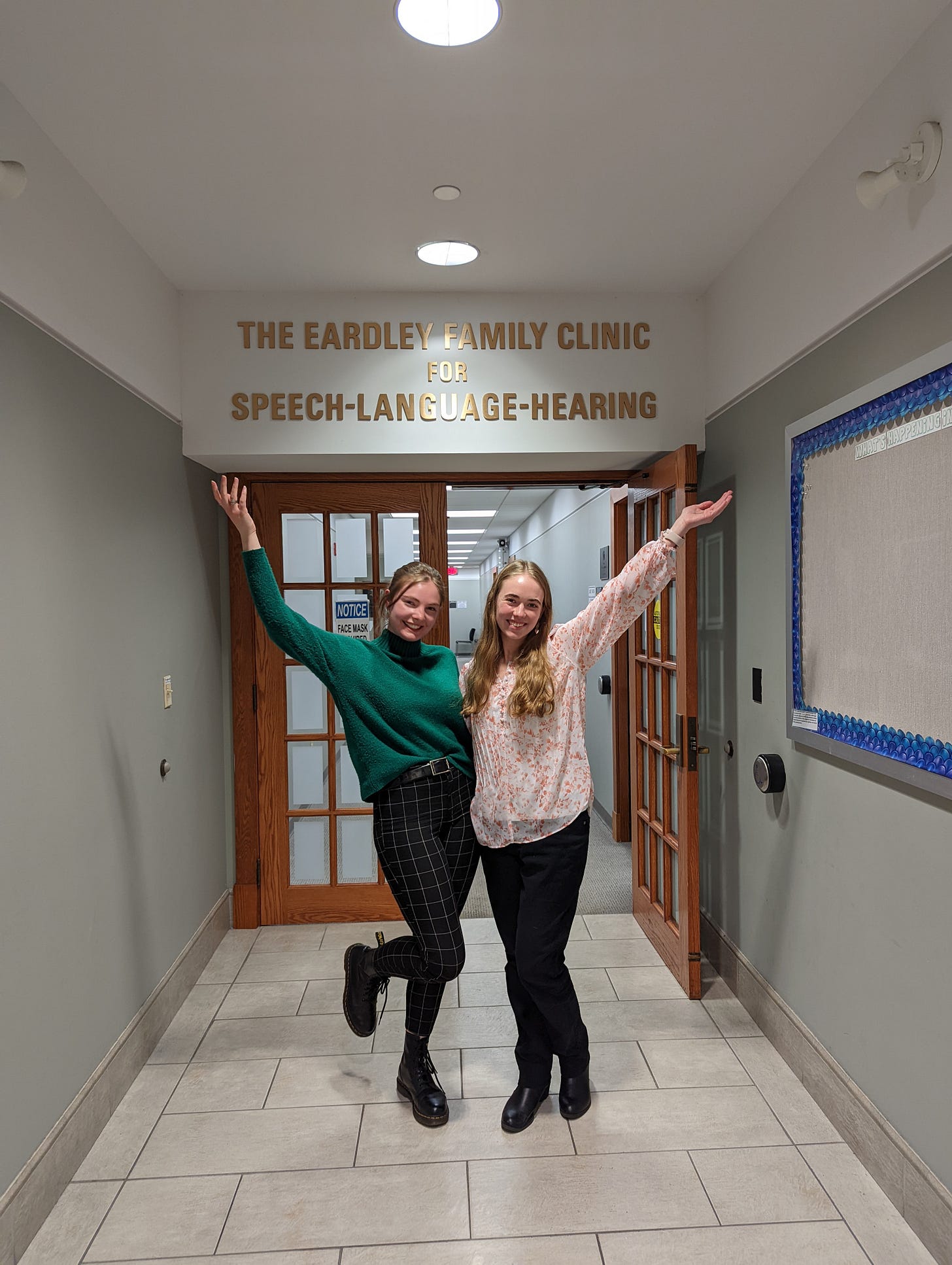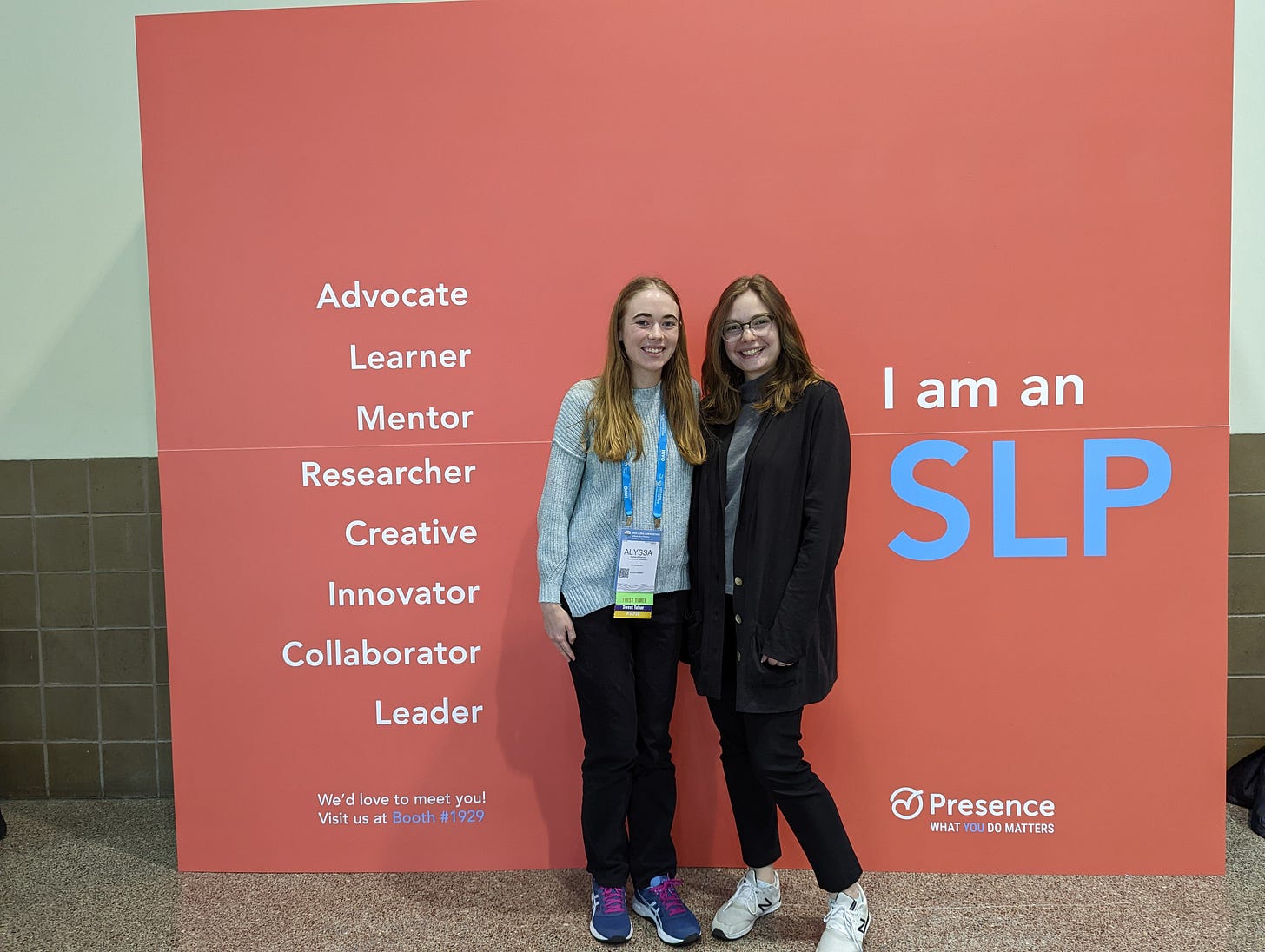what I wished I'd known before becoming a speech therapist
reflections after working for 1.5 years
As we enter into the winter months full force, my job as a school speech-language pathologist ramps up once again. It’s said in the education world that January and February are the “mid-year slumps”. We’ve come back from a nice two-week break, the days are shorter and darker, and everyone - teachers and students alike - is lacking motivation.
January also marks the 1.5-year mark of my work at my job and in my career. While I know I have many years before me still (#lookingforwardtoretirement), the new year has me reflecting on my career and line of work, particularly, the setting of working in a school and the nature of my work as an SLP.
Here are 5 things I wish I’d known about my career before going into it.
1. my work would be a mixture of evidence-based practice and figuring out what works for the individual
Research is fun, but there are times when what works for a tested research group is not what works with the student sitting across from me. This is something that I’ve learned to appreciate about my job - it used to make me anxious about how often I would have to think on my feet. But now I love how flexible my sessions can be.
Particularly when working with students in high school, the focus is no longer purely on academics - the aim is to provide life skills. So sometimes that means abandoning the reading I had picked out to help a student complete their class assignments or giving them space to talk about what’s going on in their lives. Plus, I just love to teach problem-solving and critical thinking skills.
2. my brain would work so hard every day trying to understand my students
My students have disabilities - ranging from mild to severe - and with these disabilities often come varying language skills. Because expressing one’s self is often more difficult than understanding, especially for my kiddos, I spend much of my time attempting to piece together whatever it is that they’re trying to tell me.
As my one friend and fellow SLP likes to say: “Make it make sense.”
I actively love this part of my job, because it’s rewarding for both parties involved - when my students feel understood, it reduces their frustration and strengthens the bond between us. And on my end, I feel like I’ve accomplished something by helping them feel understood and solving a puzzle.
But to do this all day, every day… is draining.
I often come home feeling like my brain has been reduced to liquid and it’s sliding out through my ears. Thanks to graduate school and time, I’ve grown more resilient and I’ve learned some strategies that have helped me overcome this exhaustion. But not having my externships be in a school, I never got to experience multiple different communication styles attempting to converse with me all at once.
For eight hours a day.
Five days a week.
Now this is my life, and this mental exhaustion is a large part of my work that still “comes home” with me almost every day.
3. I would do a lot of listening
I share my personality and pieces of myself when it’s appropriate, but for the most part, I am listening. I am working to understand my students and help them get their point across. I’ve entertained a lot of conversations about superheroes and breakfast cereal and Among Us. To the point where I come home and I need someone to listen to me yap for an extended period of time (sorry, David).
4. all of this and more contribute to burnout (and the burnout is REAL)
Due to the nature of our field, SLPs tend to experience burnout. Even from my limited experience, I can see just how easy it is to get overworked and become overwhelmed. Sometimes it’s easy to let the lines blur between work and personal life because the caseloads can be heavy, the expectations can be unrealistic, and we SLPs may not get the support we need because we are so often overlooked - particularly within the school setting.
I feel lucky to have experienced burnout more in graduate school than I have in my actual career. This I think is in part because of my position within the district - I work in the high school and middle school, and just due to the nature of these buildings, my caseload is not quite at its limit. Maybe I’m also just incredible at time management, but I have been able to keep clear boundaries and get my work done within my contractual hours - with just enough time for a tiny bit of goofing off with coworkers. I am now at the point where I don’t bring work home - which is more than some tenured teachers can say.
5. how often I would have to explain my job
Sometimes even my colleagues have no idea what my job is. And usually, this is amusing to me, but sometimes it can be grating. I love what I do but it would be nice to enter into a conversation without it being assumed all that I do is help students “fix their R’s”.
I do so much more than that.
My job is not to fix. It’s to help students learn life skills that help them become employable and navigate this crazy, confusing world. Sometimes that means working on intelligibility and speech sounds. Other times it’s social skills (because we can’t talk about superheroes ALL the time), learning to pick up on context clues, or advocating for themselves when they feel overwhelmed or need help.
(Though I will admit, sometimes it’s just easier to let people think what they will about my job, and know in my heart that at least I have some idea of what I’m going.)



overall, I love my job.
Even after all of that, I love what I do. It has taken some getting use to, that’s for sure. But I love my students, the friends I’ve made, and the countless lessons I’ve learned.
I wouldn’t trade these moments in my career for anything.
what has your career taught you?
Let me know in the comments what you do and what lessons it’s taught you.
Until next time,








your job as a speech therapist sounds interesting! i used to ponder whether i could pursue my career as a speech therapist. as a teacher myself, it is always fulfilling to interact with students!